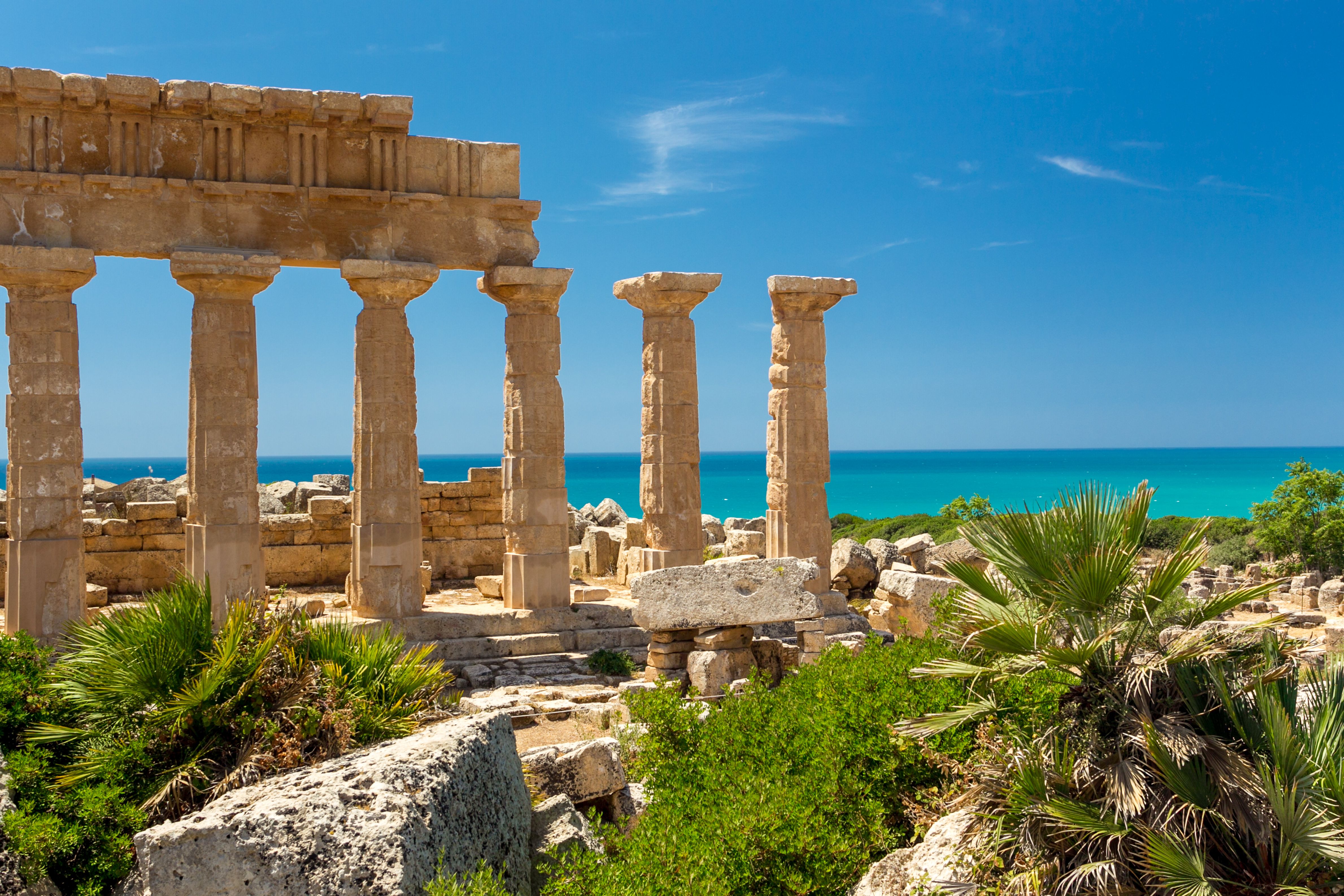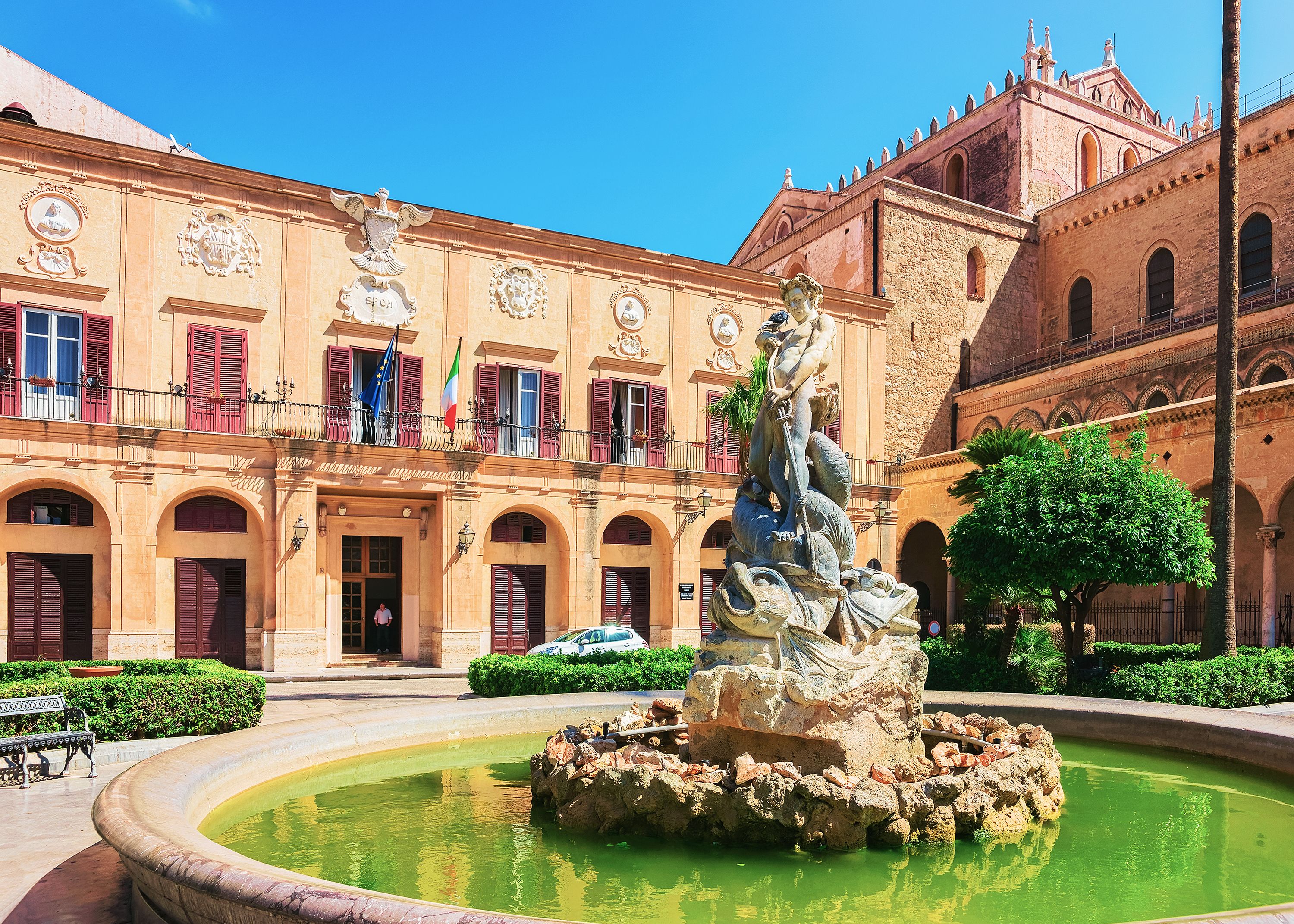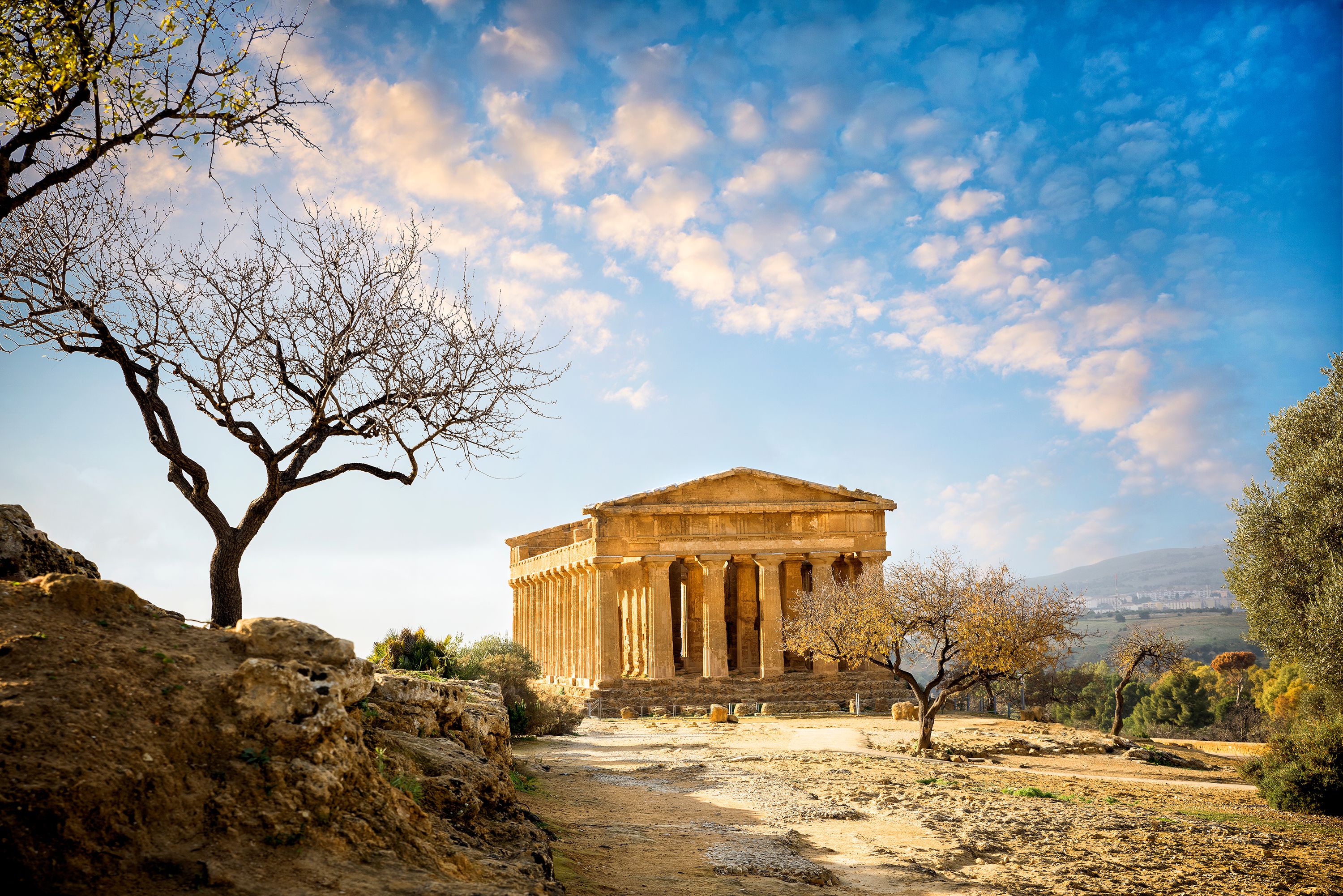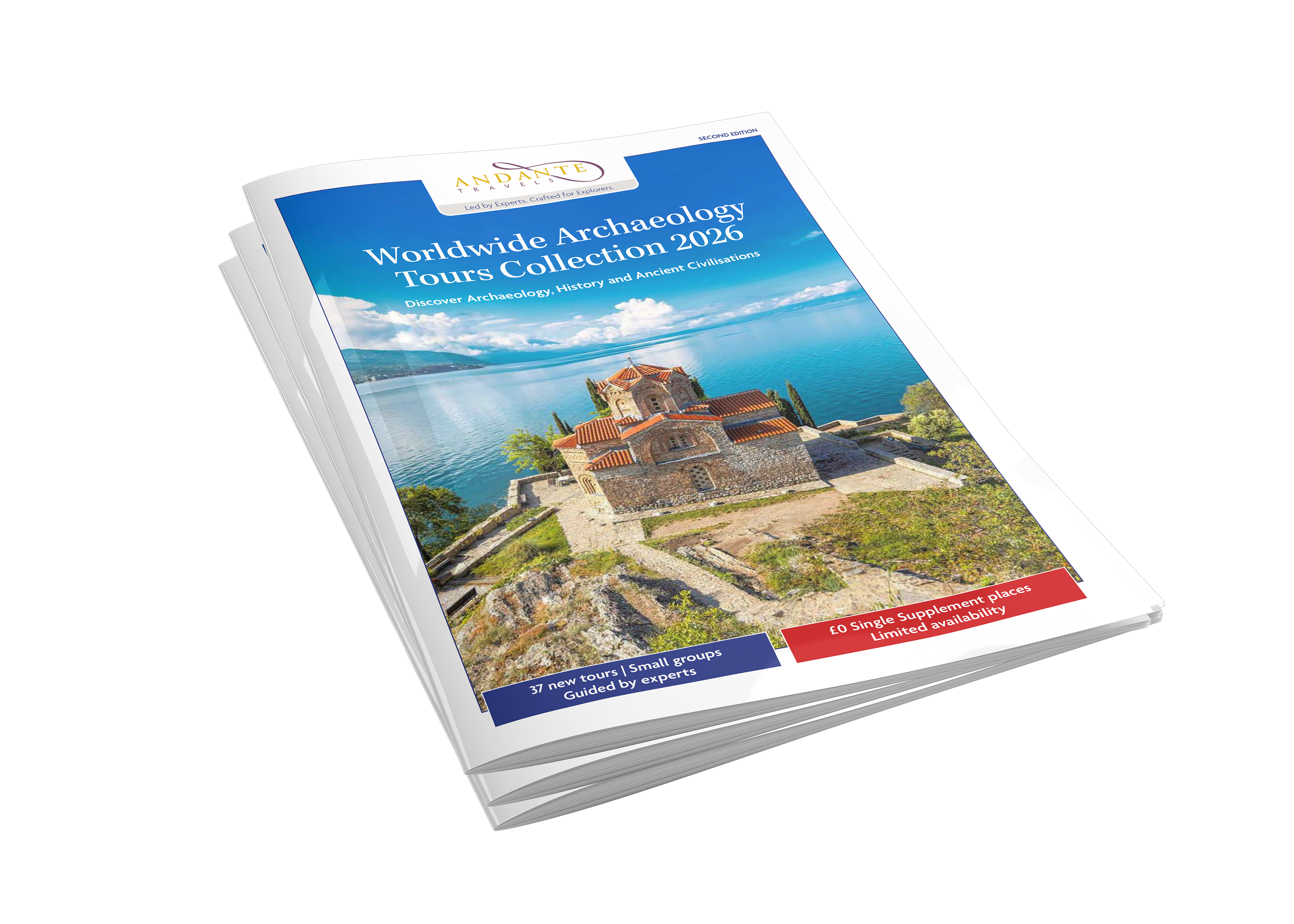Sicily: An Island of Many Cultures

Some of the richest archaeological sites and the most impressive artistic achievements of European culture are to be found in Sicily, the largest island in a sea which was itself thought to lie at the centre of the ancient world, the Mediterranean. Controlling the trade routes between east and west and the pivot of power between the ‘superpowers’ of antiquity, Sicily was fought over and repeatedly won throughout the history of western civilisation. As part of Magna Graecia, the city of Syracuse was second only to Athens and Carthaginians wrestled with Rome for control here during the first Punic War.
Join Andante on tour to discover the many cultural influences on Classical Sicily. Get close to the extraordinary panorama of changing identities – Phoenician, Greek, Roman, Byzantine, Arab and Norman.

Monreale
The Byzantine Empire was highly influential in Monreale, a city that later became the former hunting ground of the Norman kings of Sicily. By the late 12th century, when William II built Monreale, the Byzantine/Eastern Roman Empire had passed its peak, yet glorious mosaics in its cathedral remained and signified what the Romans considered to be the highest level of superiority and culture in Europe. The opulent Norman-Byzantine cathedral and abbey was founded by King William II in 1174 and he dedicated it to the Virgin Mary. It was said that he had a vision of her, in which she told him where he could find treasure to pay for the cathedral. The 68,000 square feet of beautiful mosaics depict characters from the story of Genesis, with images of the Virgin Mary and further on, of Christ crowning the King.

Agrigento
Known as the ‘Valley of the Temples, the archaeological area of Agrigento was taken over in 210 BC by the Romans during the Second Punic War and under new rule was renamed Agrigentum. Founded by the Greeks in the 6th century BC and after a long rule by the Carthaginians, the city entered a renaissance period during Roman occupation but later saw a decline as the Empire began to collapse.
NEWSLETTER
Opt-in to our email newsletter and hear about new offers first – view our privacy policy for details.


